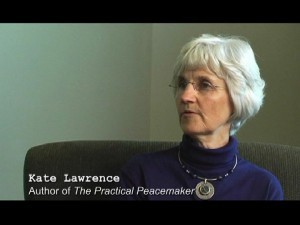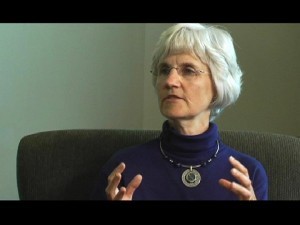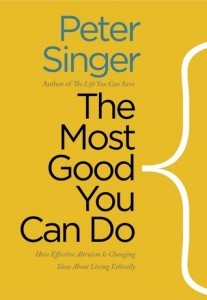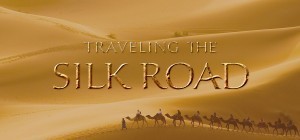Kate Lawrence's Blog
August 1, 2016
Book review: Collapse
July 9, 2016
Keeping Backyard Chickens Is Not a Good Idea
June 1, 2016
Would a Deer Hug a Hunter? I Don’t Think So
May 23, 2016
It’s Yard Saling Time Again–An Amazing Way to Save Resources
February 6, 2016
Why I’m Not Caught Up in Super Bowl Mania
December 5, 2015
The Longest Struggle
December 3, 2015
Maintenance for Practical Peacemaker web site
October 6, 2015
Interview Excerpts on Peaceful Living
Three brief excerpts ( 2-5 minutes each) from an interview I did about my book The Practical Peacemaker are now posted on YouTube. The interview was part of the series “Authors at Douglas County Libraries.” The excerpts are on three topics I discuss in the book that make possible more peaceful living, both personally and in society. Click on photos below to start each of these excerpts.

Kate on vegetarianism

Kate on population awareness

Kate on mindful media consumption
June 7, 2015
Doing the Most Good
 The Most Good You Can Do: How Effective Altruism Is Changing Ideas About Living Ethically, by Peter Singer. Yale University Press, 2015.
The Most Good You Can Do: How Effective Altruism Is Changing Ideas About Living Ethically, by Peter Singer. Yale University Press, 2015.
How fortunate we are to have a practical philosopher as articulate as Peter Singer! He doesn’t just talk idly about doing the most good for the most people, but shows us how, based on solid research on the effectiveness of charities and on the examples of actual people who are living their values. (To “meet” Singer and watch him give an 18-minute summary of the book, I highly recommend this TED talk.)
I especially like that he does not limit the good we can do to helping people, but includes animals as also worthy of our consideration. He points out that we can prevent a great deal of animal suffering for a very low (or no) cost, e.g. switching to a vegetarian diet.
I also like that he encourages simple living in order to have the maximum amount of our income for charitable giving. He’s not suggesting austerity, but we can ask ourselves, when contemplating an unnecessary purchase or trip, whether the value of more stuff or experiences is greater to us than what that same amount of money could do in preventing suffering, or saving lives in developing countries. He introduces us to some people who train for and take high-paying jobs yet continue to live simply, giving as much as 50% of their income away. However, if the average person can manage giving 5-10% of income, that can do a lot of good.
This movement of living deliberately in order to be able to give, and making use of charity evaluation websites to determine where one’s dollars will do the most good, is called effective altruism. Singer says it is particularly popular among the millennial generation, which gives hope for the future.
April 13, 2015
Cultural Exchange on the Silk Road
 One of the ways we work toward peace is by getting to know and understand other peoples’ cultures. The more we can understand why people act the way they do, what they believe and value, the more we can empathize and develop compassion for them.
One of the ways we work toward peace is by getting to know and understand other peoples’ cultures. The more we can understand why people act the way they do, what they believe and value, the more we can empathize and develop compassion for them.
I recently saw the “Traveling the Silk Road” exhibit at the Denver Museum of Nature and Science, and read the 250-page companion book by the same title. Here was a massive cultural exchange program that went on for centuries! Fabulous luxury goods like spices and exotic foods, exquisite porcelain and glassware, intricately-woven fabrics, scented oils, paper and books, were not all that was traded: travelers exchanged languages, stories and belief systems, music and dance, manufacturing technologies, and state-of-the-art scientific discoveries, among many other aspects of their lives.
Now of course, rather than travel slow and arduous miles by camel, we have the ability to fly to the most distant parts of the globe. However, people concerned about the critical state of the planet’s atmosphere will want to restrict travel in order to minimize greenhouse gas emissions and be respectful of what kind of planet we will pass on to future generations. Instead of extensive travel, we can avail ourselves of museum exhibits, books, videos, foreign visitors, and the marketplace as agents of cultural exchange and a deeper appreciation of the fascinating differences–and similarities–we share.



